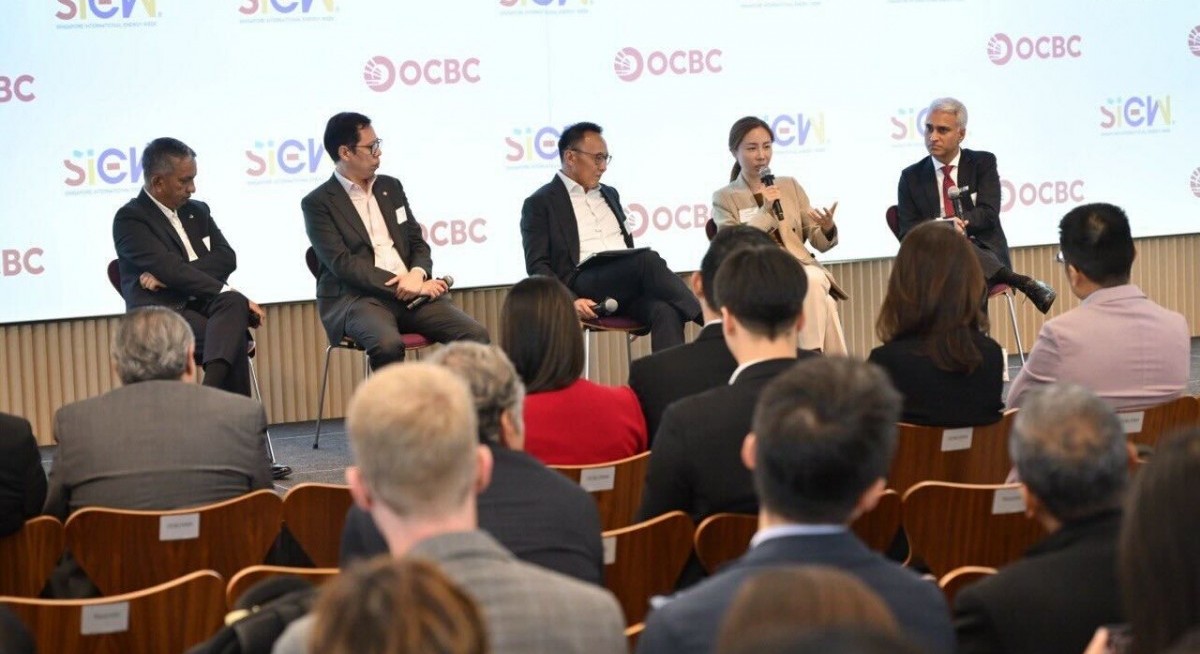Speaking on a panel at SIEWConnects@OCBC on Aug 22, Heng points to a “digital future” with greater use of artificial intelligence, autonomous vehicles and robotics — happening alongside Asia’s growth in income and its middle class.
In 2000, only 60% of Asia was electrified; today, that number is closer to 96%, says Heng. “How are we going to make this available for more Asian economies — first, energy; and then clean energy? I think this is one of the biggest challenges that we face, and [we must] do it in a way that is pragmatic.”
The former group CEO of Pavilion Energy adds: “We have to balance aspirations such as net-zero targets with realities — realities where we can try and make things happen for people on the ground.”
Singapore has enjoyed tremendous economic growth over the past 60 years, says Heng. “That, I think, is a function of the fact that affordable, reliable energy has been made available for our economy… There are people in Indonesia [and] Vietnam who would want the same level of economic growth and are aspiring for the same thing.”
See also: Trump set to direct Pentagon to buy coal power to revive industry
A ‘pragmatic balance’
Pavilion Energy, a Singapore liquefied natural gas (LNG) company, was sold by Temasek to oil giant Shell in June 2024. Heng, a veteran of the oil and gas sector, says the world will “continue to need natural gas for the next 20 years”.
See also: Chipmaking hub Taiwan reaffirms support for new nuclear tech
“I’m not as optimistic about some aspects of hydrogen and ammonia; I think they work very well in clusters, but if you want to turn it into a merchant, global distribution of hydrogen and ammonia, I think we are some years away,” says Heng.
For a “brief moment” in 2022 after Russia’s initial invasion of Ukraine, gas prices surged to levels that made such alternative fuels appear feasible — “but today, it is not”, says Heng.
Policies like carbon taxes may help, he adds, and Singapore currently has a tax of $25 per tonne of carbon dioxide in place. However, that is only the first step.
“The regulatory framework needs to be very, very firm; and it is not easy, because in some of the countries and regions around us, there are lots of vested interests,” says Heng.
He cites Indonesia’s “tremendous” coal resources — “it’s going to be hard to fight against the commercial realities in that space” — and Malaysia’s “tremendous” fossil fuel subsidies. “Until you overcome some of these inherent barriers, it’s always going to be challenging to have a market-based comparison among different technologies [and] different fuel mix types in different places.”
Alternative fuel projects must be bankable, says Heng, and they must “earn their right” to compete in the open market.
“If they get to a low enough cost curve through wide adaptation [and] wide usage, then why not? I think the question is: How long does it take for us to get to that cost curve? Will we ever get to that cost curve? Is this the technology we should be betting on?” he adds.
To stay ahead of Singapore and the region’s corporate and economic trends, click here for Latest Section
Investing in “green things” should not preclude existing investments in fossil fuels, says Heng. “What that will lead to eventually is greater supply uncertainty and greater price volatility over time.”
Heng adds: “I’ve been in the oil and gas business for years, and I can tell you — the depletion rate of oil and gas is real, [at] 4%-5% every year. At some point, whatever fields you have today [will] decline, and unless more investments are put into it, there will not be a replacement for the current supply.”
Heng warns of “price shocks” that will come with a shortage in fossil fuels. “If we are prepared to accept the shocks, [then] well and good. But if we can’t, then I think we need to find a way to find a right, pragmatic balance.”
Singapore GasCo was established in May to centralise the procurement and supply of natural gas to the power sector in Singapore. According to the Energy Market Authority (EMA), Singapore GasCo can reap economies of scale and negotiate for “more favourable gas contracting terms”. The entity can also procure natural gas from “diverse sources” and enter into “longer-term” gas contracts to provide more stable supply and prices.
SIEWConnects@OCBC, co-hosted by the EMA, is the penultimate of six forums held around the world, in the lead up to the annual Singapore International Energy Week. This year’s energy convention is slated for Oct 27 to 31.




